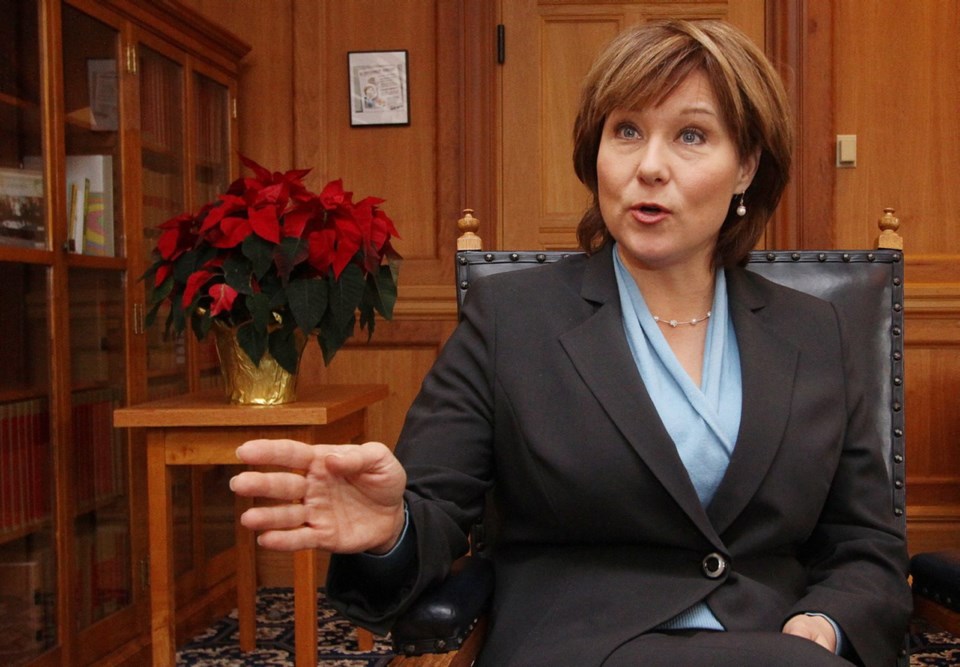Residents of Vancouver Island’s ferry-dependent coastal communities may head into the May provincial election without a clear solution for the financial troubles at B.C. Ferries, the premier says.
Christy Clark said she was unsure whether her government would finish its planned public consultation on ferry service reductions with enough time to propose a solution in her party’s re-election platform this spring.
“I don’t know that the consultation will be finished by then,” she told the Times Colonist in a year-end interview.
“It’s a pretty major rethink of how [B.C. Ferries] is going to work … and I don’t know where we’ll end up.”
B.C. Ferries is wrestling with low ridership, rising fares and steep financial losses.
The government estimates the quasi-private ferry company, which is subsidized by taxpayers, will run a $564-million shortfall in the next 10 years.
The government is trying to eliminate $26 million in underused ferry routes and redefine the “vision” for the company’s future with the help of recent public consultations. A final report is expected in late February, but will simply summarize the public feedback.
Despite an $80-million boost to B.C. Ferries’ government subsidy this year, ticket prices have continued to rise — with critics saying they have gone beyond what customers are willing to pay.
The government is struggling to find a balance between necessary ferry service for coastal communities and sailings that are losing money by carrying more crew than passengers, Clark said.
“That’s a vexing problem for us,” she said.
“We have put $80 million into B.C. Ferries [in additional government subsidies], as you know, and that is not a sustainable amount of money from taxpayers across the province. It’s just not. You can’t run a ferry system with that kind of level of subsidy forever.”
The struggle over the future of B.C. Ferries is just one of the issues on the minds of Island residents as they wrap up 2012 and look ahead to the May 14 provincial election.
Clark said her B.C. Jobs Plan remains the “fundamental building block” of her vision for the future of the province, with goals of creating jobs, increasing post-secondary skills training and keeping life affordable for families.
“That’s been the basis from the beginning, and we’re sticking with that,” she said.
The premier also expressed reluctance to look at personal income tax hikes to help balance the February provincial budget in the face of slumping revenue. The budget must provide enough of a surplus to be credible to voters, she added.
She said she wants B.C. to remain the lowest personal income tax jurisdiction in the country, and doesn’t believe there’s any room for a hike.
In the past, Clark has expressed bewilderment over complaints that some Island communities don’t get a fair share of government funding.
Those complaints persist, and Clark continues to reject them.
“What has the Island really needed more than anything? It’s been health-care investment, because there’s a . . . growing aging population on the Island,” she said.
“So the new Royal Jubilee Hospital is $358 million of investment. Comox/North Island, $600 million for hospitals in that region. That’s really been the bulk of the government’s investment over the last little while.
“It’s an investment that’s been well-earned by the Island, given that so many people are retiring here and requiring more health care as they age.”



